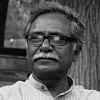
Anu Muhammad
The writer is member secretary of the National Committee to Protect Oil, Gas, Mineral Resources, Power and Ports.
The writer is member secretary of the National Committee to Protect Oil, Gas, Mineral Resources, Power and Ports.
Through this movement, the people of Bangladesh expressed their protest using a language shaped by long-standing discontent.
It is the duty of every individual across the world, to speak out, to resist, the Israeli-US war machine.
We demand actionable measures from the interim government.
Number of families where men provide for women is rapidly decreasing.
Palestine is being reduced to a business opportunity under the Trump administration. Gaza is seen as prime real estate.
The 1971 Liberation War was the culmination of a long struggle for a democratic, secular, and egalitarian society.
Just because the Indian people supported Bangladesh in 1971, does that mean Bangladesh should now be indebted to the Indian government?
If we take Bangladesh as an example, the Liberation War was fundamentally fought to establish social justice.
Until the fall of Sheikh Hasina's government in 2024, Bangladesh's economy was heavily shaped by rampant corruption, plundering, and illicit asset transfers.
The spirit of 1971 lives on, and it is up to the present generation to ensure that its promises are fulfilled.
To prevent a return to authoritarianism or fascism, strengthening democratic processes is crucial.
Education must be made enjoyable, accessible, and equitable for students, and for that teachers must have a quality life with dignity.
Govt must move away from import-loan-foreign company-dependent projects and adopt a cheaper, environment-friendly, and sustainable roadmap
After 15 years of autocratic rule and authoritarian economic policymaking, the time has come for significant societal reform
We Bangladeshis have a special strength, which enables us to form mass uprisings and put up resistance.
The government showed us how to take a solvable problem and make it complicated
What is happening in Bangladesh right now is truly unfathomable.
The government is complicating and antagonising a solvable proposition by ordinary citizens